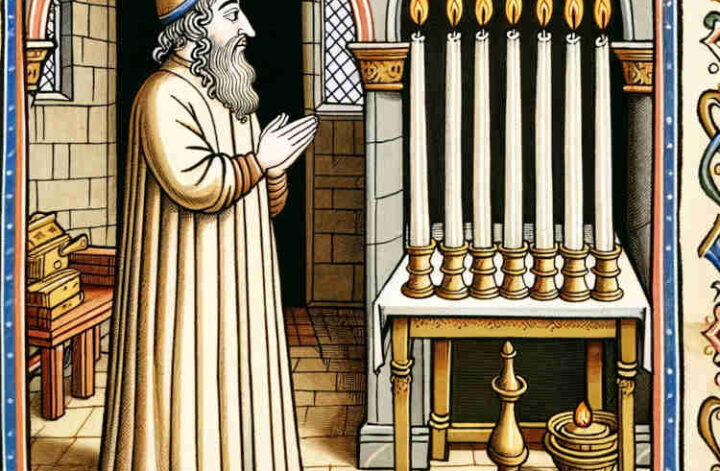Hello, or Dear Rabbi,
I’ve often heard the phrase “oy vey” in conversations and in popular culture. It seems to express some sort of dismay or concern, but I’m curious to know more about its origin and deeper meaning within Jewish culture. Could you please elaborate on this expression?
– Michael Bernstein
The Essence of “Oy Vey”
Dear Michael,
Thank you for your inquisitive and thoughtful question. The phrase “oy vey,” or in Hebrew, אוי וויי, is imbued with a profound cultural significance that transcends its literal translation. It originates from the Yiddish language, which itself is a tapestry woven with the threads of Hebrew, German, and Slavic languages, historically spoken by the Ashkenazi Jews of Eastern Europe.
Linguistic Roots and Usage
The term “oy” is an interjection akin to “alas,” expressing a spectrum of emotions from sadness to surprise, while “vey” is a contraction of the German word “weh,” meaning “woe.” Together, “oy vey” can be interpreted as an exclamation of pain, worry, or dismay, reflecting the speaker’s emotional state in the face of a troubling situation.
Cultural Context and Philosophical Undertones
In a broader cultural context, “oy vey” is more than a mere expression of discomfort; it encapsulates a philosophical stance towards life’s challenges. It carries with it the weight of a people who have historically faced many adversities, yet have also maintained a unique sense of humor and resilience. This phrase embodies a collective Jewish experience—a verbal sigh that conveys understanding, empathy, and the shared burden of historical memory.
Spiritual Implications
On a spiritual level, “oy vey” can be seen as a succinct prayer, a cry from the depths of the soul reaching towards the Divine. In times of distress, it acts as a spontaneous utterance, encapsulating the heart’s plea for compassion and relief. It is a reminder that in Judaism, words carry the power to express the inexpressible, to connect the finite with the Infinite, and to transform a personal lament into a universal expression of human vulnerability.
Conclusion
In conclusion, “oy vey” is a phrase rich with historical resonance and emotional depth. It is a linguistic embrace, offering comfort in its shared recognition of life’s oftentimes arduous journey. When you hear or utter “oy vey,” know that it is an echo of a people’s soul, a small but significant part of the enduring spirit of Jewish life and tradition.
Shalom,
Rabbi Joshua



